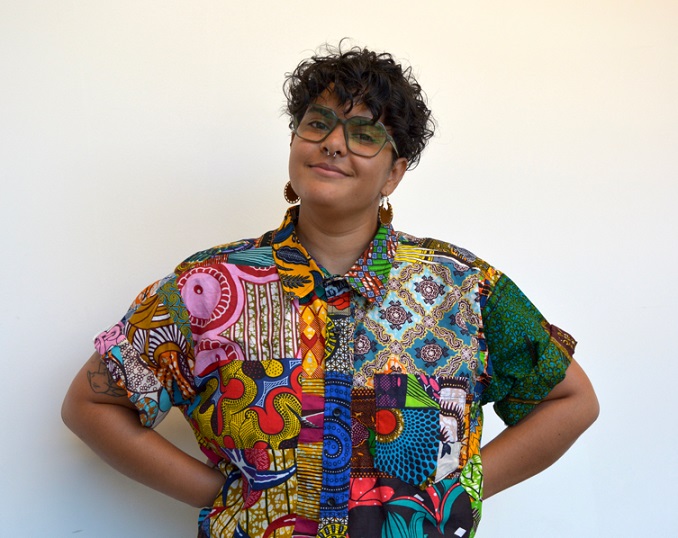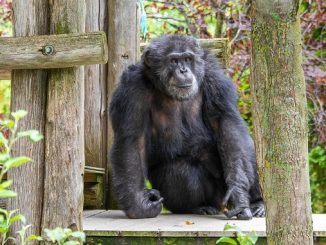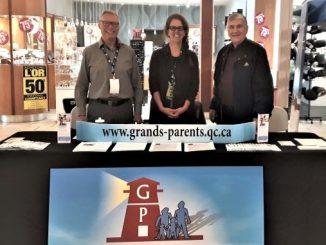Red Closet Drama is a Montreal-based QTBIPOC drama troupe exploring the world of theatre. With a focus on an inclusive approach, this troupe provides access to artistic performances by and for members of the BIPOC queer trans community of the city. We spoke with creator Charly Cartier to learn more about what they do on stage.

Describe your charity/non-profit/volunteer work in a few sentences.
The idea behind Red Closet Drama was to create a safe space for members of the global majority identifying as part of the queer community to explore and try performing arts. Everyone from those communities were welcome, regardless of their level of experience in theatre, musicals, dance, etc. We shared our knowledge, questions, and explored these mediums together without fear of judgment or expectations to perform in a certain way. I personally believe that storytelling in any form is within us, and we deserve a space to reconnect with these traditions and create our own without Western influences.
What problem does it aim to solve?
Ideally, the organization will be a resource for those seeking this type of community. I know a few people who gave up the performing arts because they couldn’t find a team or a collective to which they could belong. Not just physically, but culturally and spiritually. In a perfect world, Red Closet Drama would be a beacon of hope for our BIPOC two-spirit, queer and trans friends seeking any sort of experience or even career in theater or any other live performing art. It would also be an opportunity to unlearn the processes that dominate the field and explore what kind of work works best for us. It doesn’t always have to be the same hierarchical structure we all know.
When did you start/join it?
I created the troop in August 2024. So it is quite new.
What made you want to get involved?
I wanted to create that space for myself and my community. I had given up on theatre since I moved to Montreal, and it took me 7 years to come to the conclusion that if no one was going to create that space for me, then I was going to be the one to create it. I had experience in community organizing, and as a part-time artist, I figured I could probably pull it off. I am still learning, and honestly, I love the people who have joined the team. I learn from them every week, and I hope to do the same for them. I couldn’t be more grateful.
What was the situation like when you started?
Well… A bit chaotic? I really just started by sharing on my Instagram and calling members of the community who would be interested in this crazy idea! And people showed up! It is hard to gather people, I have to say. In this capitalistic world, we’re all busy all the time, and schedules don’t always coincide. But people showed up, and that gave me a lot of hope. We struggled to find an affordable place to meet. But we made it so far. At the beginning, I started paying for it out of my own pocket, and then, to my surprise, which I did not expect at all, the team members who could afford offered to pitch in. This shows me how much we need this kind of community, and we will support each other for this kind of space. Also, I didn’t know any of these people! Yes, I met a bunch of strangers in a park. But now it’s like we’ve been friends for a few years.
How has it changed since?
It’s even more chaotic. But a good chaos. We somehow thrive in it. We got a grant to help us put on our very first show! After that, we already have a few other show ideas. I can only speak from my own experience when it comes to how this project has changed things for me. Personally, it was good to be able to hang out with my community in somewhere that isn’t a party or a protest. I feel like we need soft moments and times when our gatherings aren’t activism, even though I think our existence is resistance. It has allowed me to be more vocal and present in those activist moments. As someone with disabilities and chronic pain, it also feels good to be honest about my own abilities when I meet the team and how they are respected and cared for. I really hope that my teammates feel the same way and that everyone in our community can experience that.
What more needs to be done?
I think Red Closet Drama is just a drop in the bucket of what needs to be done. I think there are never enough community spaces that are safe. Being able to afford a space where we can create together shouldn’t be that hard. I think we deserve to be able to work in the fields we love without being traumatized. And it starts with little things like a community theatre group with a completely crazy name. And that is what we are trying to do. It also takes more funding… We are constantly expected to work for free until we ‘make it’. But that is such a privileged way to approach the art world. There needs to be more support for emerging artists, especially members of our community. We have such beautiful things to say. I wish people would listen.
How can our readers help?
Follow us on Instagram! Share our stuff. But also, if you have the capacity and the desire, start your community group. Ask around. And if you don’t know where to start, ask us! Red Closet Drama isn’t just for troop members. It’s for everyone. If there’s a skill or knowledge we can share, we’ll do it with a smile. And if you’re somebody who finances arts stuff, give special attention to grassroots orgs like us. There are so many out there, and they all deserve to be seen and heard, and frankly, funded.
Where can we follow you?
PAY IT FORWARD: What is an awesome local community organization you love?
I have to give a shout out to Collectif Opulence. They regroup a bunch of artists from the global majority, and organise BIPOC queer events throughout the year. They’ve done art workshops, community retreats, a festival, and they help other organizations coordinate and provide small financial support.



